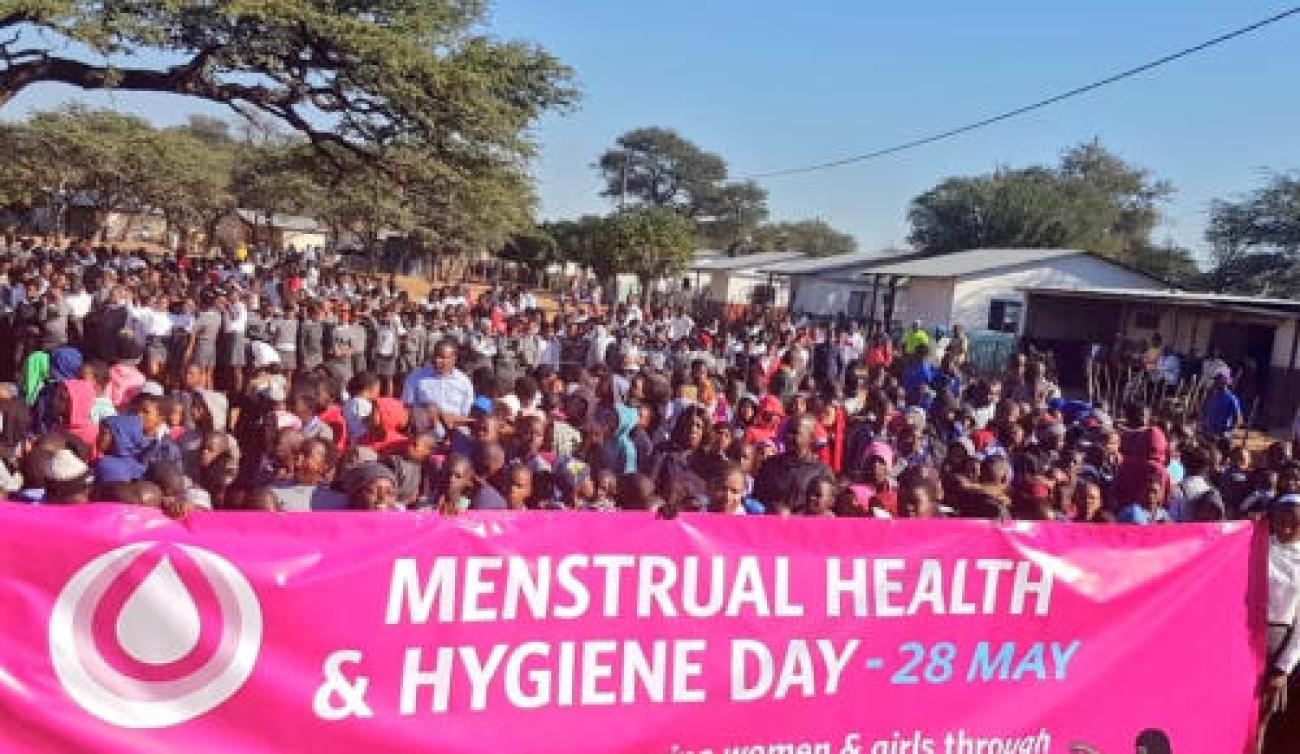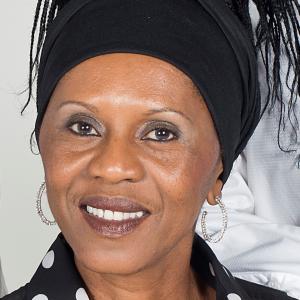In a collective effort to draw increased attention on menstrual health and hygiene management, Government, together with the United Nations, hosted the first national commemoration of the Menstrual Health and Hygiene Day for Namibia.
Held in Gobabis under the theme, Empowering women and girls through good and safe menstrual health and hygiene, the event set the tone for the development of policies and programmes to address the social, economic and cultural barriers to safe and dignified menstrual health and hygiene management.
“This day is an important platform to remind stakeholders that all our girls require dignified, safe and private facilities and products for them to remain clean, confident and secure enough to continue with daily activities during menstruation.” said Hon. Juliet Kavetuna, the Deputy Minister of Health and Social Services. “When girls do not have adequate sanitation facilities, when they face challenges in getting sanitary pads and when they are surrounded by discriminatory social taboos about menstruation, they will continue to be deprived of opportunities to participate freely and comfortably in school, play or other social activities.”
In Namibia, women and girls who live in poverty do not always have access to sanitary products and are forced to make use of unsanitary and ineffective materials which can introduce diseases and infections. Only 17% of female living in rural area have access to improved sanitation facilities and this deprives women of the privacy and infrastructure required for healthy, safe and hygienic menstrual management. A WASH Needs Assessment Report of 2014 by the Society for Family Health found that only 29 per cent of schools have flush toilets, over a quarter of girls (28 per cent) use toilet facilities that were not separated from those of the boys and over half of schools (51 per cent) make no provision for girls in relation to menstruation i.e. handwashing stations with soap and water and rubbish bin inside toilet for safe disposal of pads.
“Girls become shy and stressed during this period and many therefore opt to stay at home if they do not have the right facilities, products and information to manage their menstruation in a dignified manner, that is why it is difficult for us to sit back and not pay attention when the lives of young girls are at stake,” said Ms. Sanet Steenkamp the Permanent Secretary for Ministry of Education Arts and Culture. “The Government, communities and families must be encouraged to support the girl child with information, facilities and products to help them manage the time of menstruation.”
Within some cultural groups of Namibia, menstruation remains a taboo, often associated with uncleanliness and shame. Within these cultural settings, women and girls are forced into seclusion during menstruation and parents do not feel comfortable sharing information with their growing children.
“Talking about menstruation should not make people, feel uneasy, or embarrassed. The Menstrual Health and Hygiene Day therefore helps to break the silence that shrouds the topic and helps to build awareness that this is a normal, major stage of puberty in girls,” said Ms. Rachel Odede, United Nations Resident Co-ordinator (a.i). “When we talk freely and positively about menstruation and when policies and facilities are in place for menstrual health and hygiene management, girls will be empowered to know that there are no limits to their daily activities and lives during the time of menstruation.
Currently, Government is making efforts to address the gaps in menstrual health and hygiene as one of the strategies to achieve the Sustainable Development Goals for health, access to education, gender equality, access to water and sanitation and to ensure female participation in the workforce for sustainable economic growth.
Together with key stakeholders and under the banner of the National School Health Taskforce, Government is increasing efforts to ensure that information, facilities, services and products, including those related to menstruation management, are readily available across Namibia’s schools.
Government, together with UNICEF, has also supported the establishment of Menstrual Hygiene Management Clubs as part of the School Led Total Sanitation, programme. Through the 52 clubs which have so far been established, both girls and boys within schools are equipped with knowledge about menstruation and empowered to know the facts about this natural process, while also shunning from the myths and taboos.
Positive spinoffs are being realised by this renewed attention to menstrual health and hygiene management as there is reduced absenteeism among girls at the target schools, while guidelines have been put in place to tackle the stigma attached to menstruation.
As a practical gesture to promote hygienic menstrual management, a local youth based organisation, Afriyan, mobilised sanitary pads from UN Agencies, FNB Namibia and NYC AFRIYAN members. More than 1,500 girls will benefit from this befitting gesture to provide safe and hygienic menstruation among the girls of Namibia.
Beyond the activities of the main event, week long community based engagements and interactions will be undertaken in the district to spread the message among communities, and schools.
Note for the Editor
Launched in 2014 by WASH United, a Germany NGO, Menstrual Hygiene Day is commemorated every year
on 28 May with an ultimate aim of creating a world in which every woman and girl can manage her menstruation in a hygienic way, in privacy and with dignity. Menstrual Hygiene Day therefore helps to break the silence and build awareness about the fundamental role that good Menstrual Hygiene Management plays in enabling women and girls to reach their full potential.





